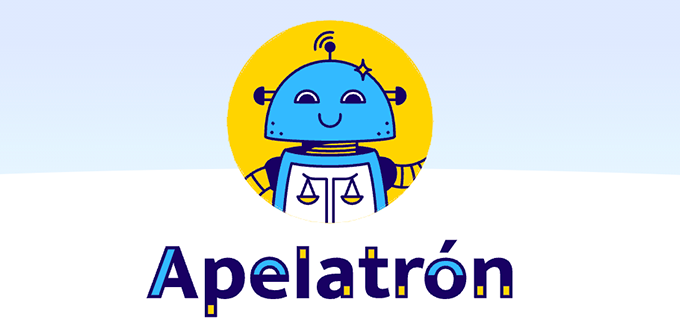APELATRÓN: A Guide to Online Content Moderation Appeals
20/11/2023

By OBSERVACOM
Apelatrón was created by OBSERVACIÓN and DATA Uruguay to help social media users to defend their freedom of expression online if they believe that their content has been affected by an unfair or illegitimate content moderation decision.
This project received a grant from the 2022 edition of the FRIDA Program.
The increasing involvement of certain international corporations in regulating the free flow of information and communication on the Internet and its impact on fundamental rights have led Freedom of Expression Rapporteurs around the world to warn that one of the three main challenges for the next ten years will be “private control of the Internet” as “a threat to freedom of expression.”
The removal or deindexation of content and the blocking or suspension of accounts by the major platforms have become a matter of special concern on the freedom of expression agenda in the region and pose a significant challenge for those of us who advocate for a free and open Internet.
Faced with these situations, users of the services often have very little information and knowledge on how to defend their right to express themselves online. The limited information provided by the platforms regarding the reasons behind their measures frequently means that those who create and share content do not understand the rationale behind the sanctions they receive.
While platforms such as Facebook, Google, Instagram, X (Twitter), and YouTube remove or deindex the content they deem non-compliant with their community standards or copyright regulations, APELATRÓN plays an essential role in guiding social media users through the internal mechanisms of these platforms. In this sense, APELATRÓN serves as a step-by-step guide of what users must do in order to file a complaint or appeal content moderation decisions in each platform. This will allow users to exercise their right to appeal when they consider that a moderation decision has been unfair or illegitimate and violates their right to express themselves freely on the Internet.
It should be noted, however, that APELATRÓN is not affiliated with any social network. Consequently, it is not a tool for submitting appeals directly to the platforms, nor does it offer legal advice.
Instead, the tool provides information about the content moderation processes implemented by the major platforms. It also explains what content removal involves, including deindexation, reduced reach or visibility, blocking, suspension, or deletion of an account (which is a user’s “means of communication” in these spaces); and upload filters, used when social networks prevent the publication of audiovisual content which they consider infringes copyright.
Content removal is a unilateral measure taken by platforms, typically without prior notification or the right to a preliminary defense. The removal can be permanent or temporary. In the latter case, the decision may be subject to modifications to the originally published content.
In turn, deindexing is a process through which specific content is removed from the platform’s search results, although this does not mean that it has been eliminated. Likewise, diminished reach or visibility means that the platform restricts the visibility of certain content or account, so that it is not visible to all users, or makes the account more difficult to discover using the platform’s internal search tool.
Depending on the infringement considered by the platforms, rather than targeting specific content, moderation measures may affect the entirety of a user’s accounts. Locking an account prevents administrators from performing certain actions, such as posting content, for a specified period or until a particular post is deleted.
Another measure could involve the temporary suspension of access to the account and all its contents. Depending on the company’s assessment, this suspension may be lifted after the user makes the modifications requested to comply with the rules. A more drastic step is the deletion of the account. This occurs in cases where the platforms believe that the violations were serious or that the account is a repeat offender. In such cases, all content generated by that account while it was active is unilaterally deleted.
The support of LACNIC’s FRIDA Program has been essential for the design and development of the tool. This support included not only a financial contribution but also assistance throughout the process, during which a series of challenges related to the availability of information had to be addressed. The meetings with the FRIDA Program team have been invaluable for evaluating strategies and planning the updates necessary for APELATRÓN to continue to be useful.
The tool will be adjusted periodically in response to changes in the platforms’ policies and appeal mechanisms, ensuring that it will continue to meet its goal of supporting users.
By collecting information from users regarding the outcome of their appeals, an analysis of the data will be conducted to identify relevant cases and topics for research. As a future goal, the project aims to incorporate information on appeal mechanisms in cases related to copyright.
The views expressed are those of the authors of this blog and do not necessarily reflect the views of LACNIC.